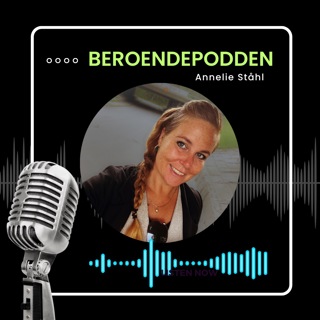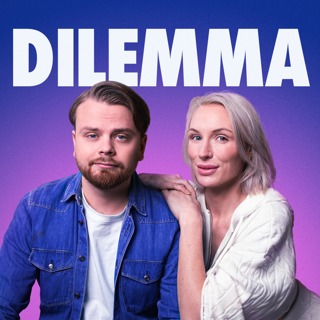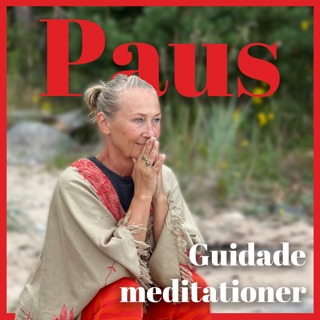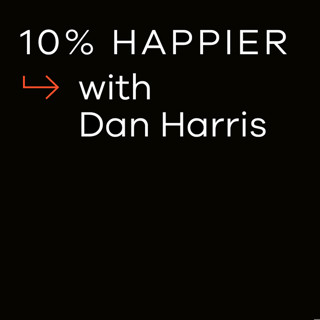
What Is Holding You Back From Greatness? | Lewis Howes
New episodes come out every Monday, Wednesday, and Friday for free, with 1-week early access for Wondery+ subscribers. --- It’s hard not to like Lewis Howes. He’s extremely open about his personal struggles, from childhood trauma to romantic challenges, from family drama to failure and self-doubt. Lewis is a voracious learner, relentless in his pursuit of his interests–and he’ll bust his ass to get to the bottom of things in his own life. His main area of interest is what he calls greatness. He hosts a podcast, a very popular one, called The School of Greatness. He has spent many many years interviewing people who have excelled in all sorts of areas and has become a true student. Lewis now has a new book, called The Greatness Mindset, in which he shares what he’s learned via all of these interviews and his own personal work. In this episode we talk about: The source of Lewis’s interest in greatness The difference between a powerless mindset and a greatness mindset The pernicious impact of self-doubt How to counter your inner critic via a ‘contract with yourself’ How to face your fears The importance of mission and purpose Where selfishness fits into finding your mission and purpose And we have a friendly debate about the law of attraction Full Shownotes: https://www.tenpercent.com/podcast-episode/lewis-howes-571
8 Mars 202353min

You Are Not a Sh*tty Person | Carla Naumburg
New episodes come out every Monday, Wednesday, and Friday for free, with 1-week early access for Wondery+ subscribers. --- There’s so much compelling research behind the notion of self compassion. Even though many of us think we need an internal cattle prod in order to retain our edge, research shows that people who have a supportive inner attitude — who have their own back — are more resilient and effective. Not to mention happier. And nicer. And yet, it is easy for skeptics to be turned off by some of the language and practices of self compassion. So today we brought in a guest who puts it in plain English, and is very funny. Carla Naumburg PhD is a clinical social worker, author, and mother. She has a lot to say about self compassion, and she does so in a way that skeptics will find appealing. One other note about Carla. A lot of her books are directed at parents, especially parents who are self critical. But this episode is aimed at everybody. We do talk a little bit about parenting at the end, but it’s not the main focus. Just so you have it, her books have titles such as: How to Stop Losing Your Sh*t with Your Kids and You Are Not a Sh*tty Parent. It’s common for parents to think they suck. It’s also common for humans to think we suck. That we are somehow terrible people. Sit back, relax, and let Carla disabuse you of that notion. In this episode we talk about: What Carla calls “shitty human syndrome” Asking ourselves, what do I need right now? How, for skeptics, the data on the effectiveness of compassion practices is a powerful incentive. The third arrow of denial and distraction The very human problem of not knowing how to deal with our feelings. Using “noticing, connection, curiosity, and kindness” as ways to get super clear about the practice of self-compassion Curiosity as the antidote to judgment How loving-kindness ties into the ability to treat ourselves with self-compassion. Kinder self-talk Practicing self-care by setting boundaries Single tasking as a strategy for decreasing stress And, using acronyms like SNAFU and KISS as a simple way to quickly access complicated thoughts Content Warning: This episode contains explicit language. There is a clean version over on the TPH app and website. Full Shownotes: https://www.tenpercent.com/podcast-episode/carla-naumburg-570
6 Mars 20231h 14min

The Many Benefits of a “Paradox Mindset” | Dolly Chugh
New episodes come out every Monday, Wednesday, and Friday for free, with 1-week early access for Wondery+ subscribers. --- The human animal doesn’t love paradox. We love a clear, simple story. Us versus them. Good versus evil. But life is rarely like that. This is especially true when it comes to wrestling with history. Our guest today calls it the patriot’s dilemma. How do you love your country while also acknowledging the painful and horrifying stuff that has happened in the past? Dolly Chugh is a professor at the New York University Stern School of Business where she teaches MBA courses in leadership and management. This is her second time on the show. The last time she came on, she spoke about the concept of being “good-ish.” One of the reasons we get defensive when people criticize us is that we feel like it’s a threat to our precious notion of being a good person. But if you have a good-ish mindset, then there’s always room to grow. Her new book, A More Just Future, encourages us to do that for America. Content Warning: This episode includes brief mentions of slavery and violence. In this episode, we talked about: Why Dolly was scared to write this book What the home team bias is and how it shows up when we think about our past What belief grief is The “long time ago illusion” And, what Dolly calls being a gritty patriot Full Shownotes: https://www.tenpercent.com/podcast-episode/dolly-chugh-568
1 Mars 202356min

Jonathan Haidt on: The Upside of Striving, How to Build a Stronger Mind, And What to Do with Ideas You Hate
New episodes come out every Monday, Wednesday, and Friday for free, with 1-week early access for Wondery+ subscribers. --- Usually episodes of this show are organized around one big question, but today’s guest, Jonathan Haidt, is just too interesting for one clear focus. In this episode, we dig into a ton of fascinating topics, including: why it can make you happier to see your own irrationality and hypocrisy, the value of interacting with ideas you do not like, how to navigate social media sanely, how to get ahead at work (and stay happy in the process), the upside of striving, the wisdom of the Stoics, and more. Jonathan Haidt is a renowned social psychologist from New York University’s Stern school of business and the author of many books, including: The Happiness Hypothesis: Finding Modern Truth in Ancient Wisdom, The Righteous Mind: Why Good People are Divided by Politics and Religion, and The Coddling of the American Mind: How Good Intentions and Bad Ideas are Setting Up a Generation for Failure. Since 2018, he’s been studying the contributions of social media to the decline of teen mental health and the rise of political dysfunction. One other note: heads up that this conversation includes mentions of self-harm and suicide. In this episode we talk about: Haidt’s elephant and rider metaphor that explains how our minds’ operate How to use different techniques from hypnosis to Buddhist and Stoic practices to tame our unconscious Why we’ve evolved to be hypocrites and how admitting our flaws can help us come out ahead Buddhism as a counterpoint to our success oriented culture The deleterious effects of social media on democracy and young people’s mental health Full Shownotes: https://www.tenpercent.com/podcast-episode/jonathan-haidt-567
27 Feb 202353min

A Radical Alternative to Revenge | sujatha baliga
New episodes come out every Monday, Wednesday, and Friday for free, with 1-week early access for Wondery+ subscribers. --- Very often, when somebody pisses us off, our first instinct might be to plan some sort of revenge even if we rarely, if ever, actually follow through with it. Obviously, the trait of revenge seeking is counterproductive and it happens to also feel terrible. All the great wisdom traditions tell us that we should be forgiving instead and this isn’t just some sort of finger wagging from the morality police; it’s just straight up good advice. It’s in your best interest not to be coiled up inside endless revenge fantasies. Of course, this is all easier said than done. Today, though, our guest, sujatha baliga, both says it, and does it. She has an extraordinary story: she was horribly abused by a family member, and then, after an encounter with his Holiness the Dalai Lama, learned how to forgive the seemingly unforgivable. What’s more, she now helps other people do that. Perhaps, starting now, even you. sujatha baliga is a long time Buddhist practitioner and internationally recognized leader in the field of restorative justice. She was named a 2019 MacArthur Fellow and is working on her first book. Content Warning: This episode includes multiple references to violent and traumatic experiences, including homicide and incest. In this episode we talk about: Her personal story, including her early experience with sexual assault within her family Her life-changing encounter with his Holiness the Dalai Lama, and her experience with learning to forgive with the help of meditation Her experience working in the criminal justice system Her definition of restorative justice, why she believes we need it, and the three key questions it asks in each case Whether there is evidence that restorative justice works The limits of restorative justice What happens if someone who is the victim of a crime does want traditional punishment or even revenge How you can apply what she’s learned in her life — including her time in the field of restorative justice — to our own lives And a specific meditation practice that can help you do it Full Shownotes: https://www.tenpercent.com/podcast-episode/sujatha-baliga-565
22 Feb 202356min

How to be Less Judgmental (Of Other People – and Yourself) | La Sarmiento
New episodes come out every Monday, Wednesday, and Friday for free, with 1-week early access for Wondery+ subscribers. --- Meditation and mindfulness doesn’t uproot your capacity to be judgmental, but it can help you see the value in being judgmental by learning how to work with the judging mind. La Sarmiento has been practicing Vipassana meditation since 1998. La is a mentor for the Mindfulness Meditation Teacher Certification Program, a teacher with Cloud Sangha, and a contributor to the Ten Percent Happier app. In this episode we talk about: How mindfulness can help us identify when we’re being judgmental The difference between discernment and judgment How it can be so delicious to be judgmental of others – but why it’s actually harmful to ourselves and others The four questions to ask when we notice ourselves going into judgment mode How to operationalize the phrase “am I suffering right now?” Investigating the motivations behind striving for success Why owning up to being a jerk is sometimes the exact right answer Full Shownotes: https://www.tenpercent.com/podcast-episode/la-sarmiento-564
20 Feb 202354min
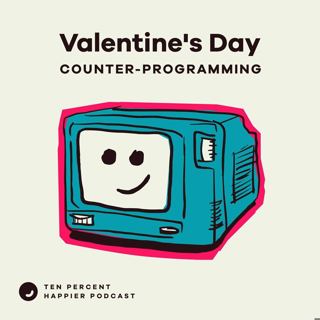
How to Get Over Rejection | Florence Williams
New episodes come out every Monday, Wednesday, and Friday for free, with 1-week early access for Wondery+ subscribers. --- This is the last episode in our four-part series where we’re counter-programming against the way Valentine’s Day is often celebrated, and examining different kinds of relationships including romantic, friendship, and family. Today we’re probing a mystery: Why, from an evolutionary standpoint do we take heartbreak and rejection so hard? It can send the body and mind into a vicious spiral. As one genomics researcher has said, “heartbreak is one of the hidden landmines of human existence.“ There are countless pieces of art dedicated to heartbreak. Songs, movies, poems, the list is pretty much endless. But what does science say? Why does this happen to us? How exactly does the body react to a bad break up, from a romantic partnership, or a friendship or even a job? And what can we do to get over it? These are the questions the writer, Florence Williams decided to tackle after her own 25 year marriage fell apart. And the answers are fascinating. Florence Williams is a science journalist and author, and a contributing editor at Outside Magazine. Her latest book is called, Heartbreak: A Personal and Scientific Journey. It is just out in paperback, and has been nominated for the PEN/Wilson Award for Literary Science Writing. In this episode we talk about: The passage of time as a way to heal all wounds The role purpose plays in recovery William’s three part heartbreak recovery toolkit (calming down, connecting to other people and finding purpose) The connection between openness and resilience How to become more open to a lack of closure The good and bad news about heartbreak And, rejecting some of the conventional approaches to heartbreak Full Shownotes: https://www.tenpercent.com/podcast-episode/florence-williams-562
15 Feb 20231h 5min

How the Science of Attachment Can Help You Make and Keep Friends | Dr. Marisa G. Franco
New episodes come out every Monday, Wednesday, and Friday for free, with 1-week early access for Wondery+ subscribers. --- Did you know that having friends can make you less depressed? One survey found that the average American had not made a new friend in the last five years but 45% of people said they would go out of their way to make a new friend if they only knew how. Our guest today, Dr. Marisa G. Franco, has written a bestselling book about how understanding your own psychological makeup and attachment style can help you make and keep friends. Franco is a psychologist and a professor at the University of Maryland. Her book is called Platonic: How the Science of Attachment Can Help You Make–and Keep–Friends. This is episode three of a four part series in which we are doing some counter programming against the typical Valentine's Day fair. In this episode we talk about: Why friendship is undervalued in our society (while romantic love is overvalued) and why this is damaging on both a societal and individual level The impact of technology on our relationships as explained by something called “displacement theory” The biological necessity of social connection and the devastating physiological and psychological impacts of loneliness Attachment style and its relationship to our friendships What you can do to make friends, including being open or vulnerable (without oversharing) How to reframe social rejection The importance of generosity How to handle conflict with your friends The difference between flaccid safety and dynamic safety in your friendships When to walk away from a relationship How to make friends across racial, gender, and socioeconomic lines How to deal with social anxiety And how our evolutionarily wired negativity bias can impact the process of making friends Full Shownotes: https://www.tenpercent.com/podcast-episode/marisa-g-franco-561
13 Feb 20231h 9min

















